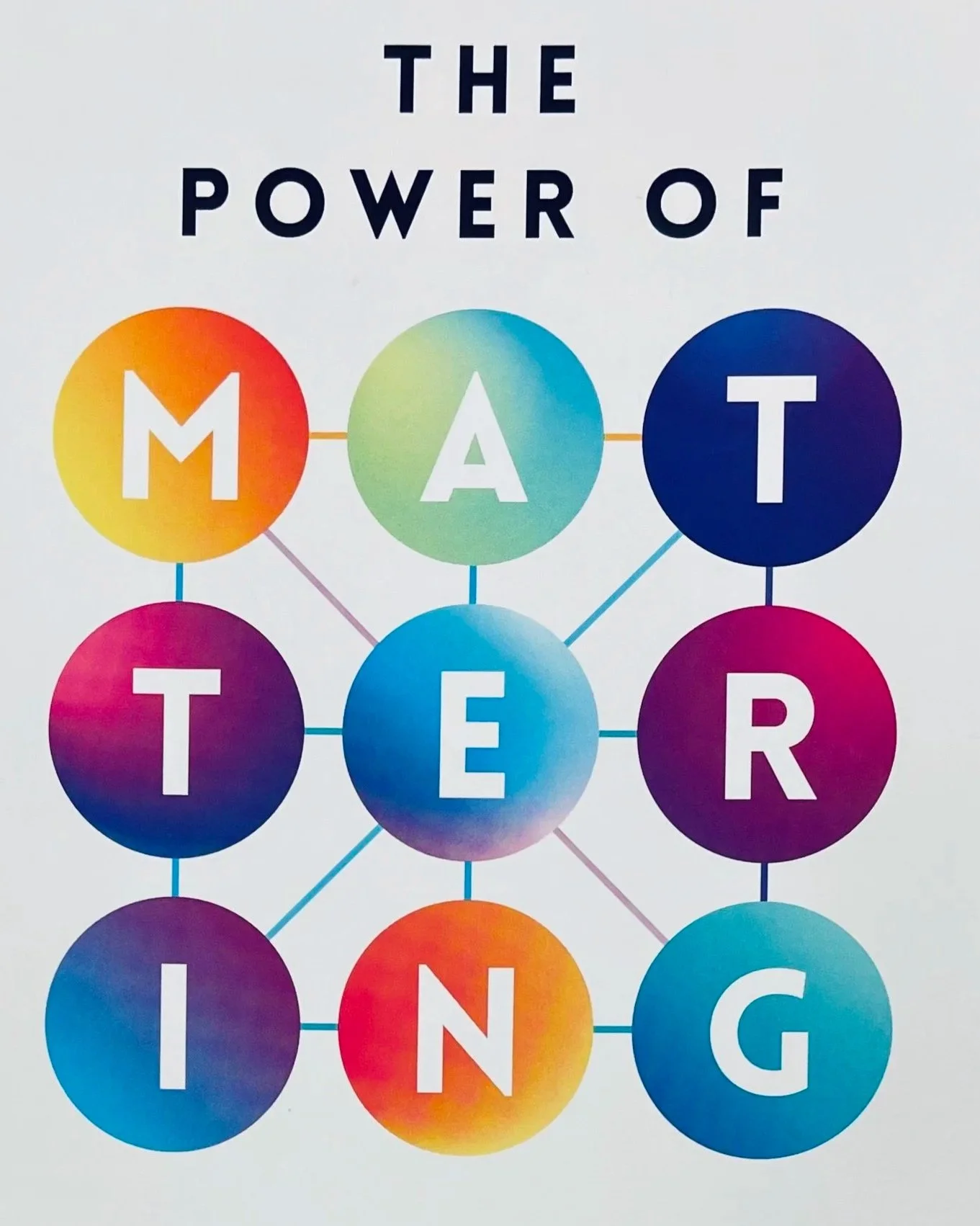How To Create A Culture Of Mattering
Recently, I met a former colleague for bagels and coffee to celebrate her move to a new position with more responsibility and earnings. As we talked about our years working together, she not only thanked me for the reference I provided for her new job, but she also expressed her gratitude for my mentorship and how much she had learned from me so many years ago. She told me that I had made her feel valued and that she had added value to our organization. In a word, she felt that she mattered, and in return, she helped me feel that I mattered too.
When do you feel that you matter?
What do people around you do to make you feel significant?
These are key questions that Dr. Zach Mercurio asks in his recent book The Power Of Mattering: How Leaders Can Create A Culture Of Significance (2025).
At a time when people report increased feelings of loneliness, depression, and anxiety, Mercurio suggests that mattering is the linchpin for addressing this crisis of well-being at work.
In The Power of Mattering, Mercurio extends past research on mattering to the context of work, which he points out that former US Surgeon General, Dr. Vivek Murphy, named as a priority for individual and organizational health in 2022 (US Department of Health and Human Services, 2024).
Mercurio argues that mattering is not an inherent feeling. Rather, it is a feeling of significance constructed through our social interactions and relationships with others. Our sense of mattering profoundly influences our self-esteem, self-efficacy, and overall mental and physical health. When we perceive that we matter to those around us, we experience a stronger sense of belonging and purpose, which can enhance our resilience during times of change and challenge.
Conversely, a lack of perceived mattering can contribute to feelings of isolation, diminished confidence, and increased stress. Recognizing the social roots of mattering underscores the importance of nurturing supportive relationships and environments, both personally and professionally, to promote well-being and adaptive growth.
Mercurio describes three essential practices that create experiences of mattering (p.5):
Noticing —seeing and hearing people and acknowledging to them what you see and hear so that they feel valued and understood.
Affirming–showing people how their particular strengths make a specific difference to you, others, and/or an organization.
Needed–showing people how they are relied on and indispensable to you, others, and/or an organization.
Practicing the Noticing-Affirming-Needed (NAN) model in small daily interactions at work enables leaders to create a culture in which team members feel both valued and capable of adding value, like my mentee. It addresses the fundamental human need for significance. It fosters engagement and motivation by acknowledging individuals’ contributions and worth within the organization. Mercurio writes:
For example, if we want people to contribute, they must believe they’re worthy of contributing. If we want them to use their strengths, they must first believe they have them. If we want them to share their voices, they must first believe their voices are significant. If we want them to care, they must first feel cared for. If we want something to matter to them, they must first believe that they matter to us. (p. 14)
Consistent application of the NAN model not only cultivates a culture of respect and recognition but also enhances overall team performance and satisfaction.
Showing people that they matter is far more effective than the ways leaders often use to promote motivation or improve performance at work, such as awards, recognitions, perks, or special privileges.
People who feel valued and know they add value act in ways that continue to add value; mattering is a “reinforcing relationship” (Mercurio, 2025, p.32). Conversely, there is a profound cost if people around us feel insignificant or experience anti-mattering, including disengagement, burnout, anxiety, depression, chronic stress, and illness.
As leaders, we should be asking ourselves, as Mercurio suggests:
What are we doing to ensure people know their voices, ideas, or feedback are significant? (p.39)
Mercurio includes a Mattering Self-Assessment for Leaders in his book and on his website: https://www.zachmercurio.com/wp-content/uploads/2024/09/ZAC_MatteringAssessment_new.pdf.
I encourage anyone who leads or manages people at work, in the community, or at home to take this fifteen-question quiz to self-assess how you help or hinder the people in your life to feel that they matter. #mattering#leadership#organizationalmangagement#happiness
